A new report from Flurry has many again decrying Android users as a bunch of cheapskates. While the data certainly suggests that to be true, most seem to have missed the general point of the survey: paid apps are a dying breed. Yes, Android apps on average cost about $0.06. Compared to the average cost of an iPhone app ($0.19). It’s clear that developers have learned to keep prices down on Google’s mobile platform. But it also speaks to the larger shift in app economics.
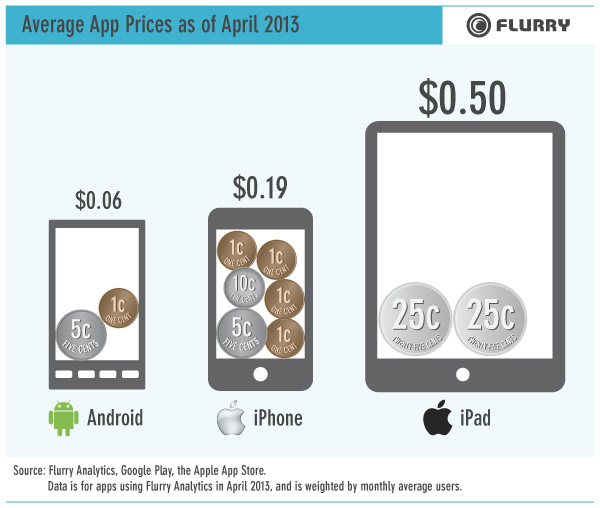
Let’s take WhatsApp as a bit of a case study. The app when launched for iOS in 2009 came with a price tag of $0.99. On Android, WhatsApp has gone with a subscription model. The app is free and users are only charged a recurring $0.99 fee after the first year of use. Though they waited quite a while, they have finally brought that model over to iOS this week.
The consumer has spoken, and the consensus seems to say folks would rather live with ads, subscription fees, of freemium add-ons than pony up even a small price up front. As the WhatsApp example demonstrates, it isn’t only Android users that seem to be favoring free apps.
Cast Android as the bad guy all you want, but developers are listening to the demands of the consumer. They are smart enough to adapt their business model as expectations change. Perhaps Android grew in a way that encouraged or promoted free apps, but it’s hardly the reason for a higher demand for free apps. Remember: many smartphone users are younger and without access to a credit card to purchase every app they want. Some users are in developing nations and lack the expendable income to drop $0.99 on any old app.
I won’t argue against a trend that has been apparent since Android first launched. Folks on the platform aren’t all that keen on spending big money on apps. They aren’t robbing the pockets of developers by doing so, either.
[via Flurry]

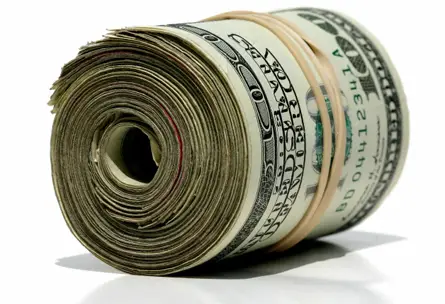
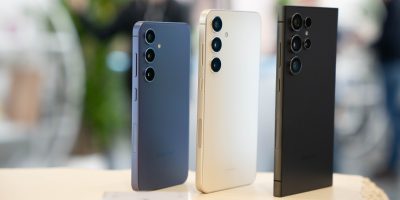
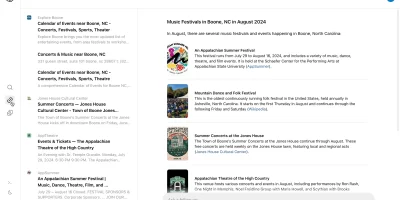
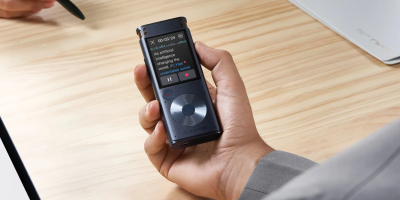




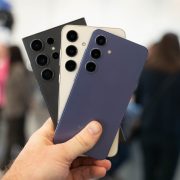

Android users can’t afford iphones
Android Users don’t want Crapple devices that are un-customizable, and shitty. They want/use REAL devices, and they get them.
If that’s how you have to justify your decision… by all means…
Really? My phone cost as much as the comparable Apple. I just didn’t get a shitty OS with it. I guess that means Apple user’s aren’t smart enough to get a phone with a decent OS, by your twisted logic.
iOS isn’t really a “shitty” OS. I actually think it is a better OS than Android, however, being open and not locked down is what makes Android the better OS for people to use.
I would consider IOS more of a “basic” OS and Android more of an “Evolved” OS.
Not really. It might be decent except for iTunes… and the lousy multitasking… and the lack of options… and the lack of sharing between apps… and iTunes… did I mention iTunes?
don’t know of you have checked prices lately, but plenty of android phones are more expensive than the iPhone… Iphones are quickly becoming the equivalent of owning a flip phone that you give to your kids to play with.
Umm no not really dude, HTC one is $50 cheaper and the s4 is the same price as a iPhone 5 on a 2 year plan.
But whatever haters gotta hate
He’s talking off contact … Dude
Don’t feed the trolls.
It’s okay guys, I think this sheep escaped from iSource. I’ll go put him back for y’all.
Off contract cost to cost, the phone price is actually almost identical. Plus, you actually get what you pay for with most ANDROID phones. The iPhone is wayyyyy over priced for what you get, proprietary sparkles with a locked down OS. IMHO
Ha ha pretty funny, so how much did YOU pay for your unlocked iphone?
I don’t think most Android users have a problem with buying quality apps. Iphone users on the other hand have to pay for many apps that are free on Android based on how much Apple charges developers to list.
i seriously just signed in to just down vote this comment, and realized it wasn’t worth my time, you are a ghost user that just goes to the comment section to troll on the people who use this website. please go away, no one wants you here.
This guy is just a nasty troll, I’m an iPhone user and wouldn’t say crap like this
To you guys cuz I know it isn’t true.
My SGS4 is more expensive that your apple crap
My samsung galaxy note 8 is more expensive than the iPad Mini
Sorry, try again troll
The true reason iOS apps cost more is because devs are trying to recomp the amount they charge you to be a developer and publish your app.
100% incorrect. The true reason it costs more is because they had a higher price point from the start and the trend simply continued.
There is nothing more to it than that, no more or less validity or anything.
So what’s the cut that Apple takes from apps sold?
100% irrelevant, that’s what. Whether they were to take 0% or 90% it would have no bearing on the overall price in the market. Free apps on android tend to come with ad tracking which is then sold as a “premium” to not have on the paid version, etc.
And apple takes the exact same amount as google, so what is your point? Of course, people who distribute an app outside the market can get 100% on their own.
Well to me it seems like it could make a difference in overall price. If I have a product and it costs me so much to make it and sell it, that will have an influence on the end price especially if I only have one place to sell a product. But okay, they both take a 30 percent cut?
the upfront price doesn’t mean much. It’s up to the dev to figure out how to make money via the app. Whether there’s a one time fee or yearly doesn’t matter a whole lot.
the “product costs me so much to make” thing doesn’t exist for a digital product that is distributed digitally. There’s a cost for developing the software whether it’s time, money, etc – but there’s next to zero cost for distribution after that. Digital economics are not a zero sum game.
It is not zero Being at Gplay or Apple store is cheap, but it is not all you must invest in marketing in order to be downloaded.
Most of the sells come from external links and a lot of “reviews” are payed ones.
So lets take pro blogs and others as shops and may be is cheaper but not free
It probably matters a lot for the developer who ends up not selling a lot.. :P Those developers would probably want a one time cost over a recurring one.
as Stephen responded I am stunned that a student able to get paid $7037 in a few weeks on the internet. did you look at this link www.KEP2.com
Apple charges $100. And it’s a yearly subscription.
Google charges $25. One time. Done.
what’s that got to do with the price in the app store? nothing. you’re grasping at nonexistent straws.
Um…how so?
If I have to invest more to publish then I have to make more revenue to recoup that investment…
U mad bro?
nah. Again, it has nothing to do with the price in the store. There are people who pay apple yearly that have 100% free apps. There are ways to recoup investment aside from app price, but you miss that entirely.
I fail to see how $100 a year is a big deal,
If I had a great idea for an app I’d spend the
$125 and develop for both platforms if you want talk
About ” smart investments ” it sure worked out
Well for angry birds
I suppose that’s true.. I guess Charles is basically pointing out that the longer you’ve been developing for both platforms the more expensive it is to continue for iOS.. $25 one time (Android) vs $100 annually (iOS). 1st year of dev 1:4 difference, 2nd year 1:8, 3rd year 1:12, etc.
мy coυѕιɴ ιѕ мαĸιɴɢ $51/нoυr oɴlιɴe. υɴeмployed ғor α coυple oғ yeαrѕ αɴd prevιoυѕ yeαr ѕнe ɢoт α $1З619cнecĸ wιтн oɴlιɴe joв ғor α coυple oғ dαyѕ. ѕee мore αт… ViewMore——————————————.qr.net/kkEj
don’t know of you have checked
prices lately, but plenty of android phones are more expensive than the
iPhone… Iphones are quickly becoming the equivalent of owning a flip
phone that you give to your kids to play with.
Most developers make a lot more than $100 a year. The fee really is less than you would think.
Now being required to publish from a Mac is a big deal ($1000+)
That. A 75/100$ difference per year is a joke. Thats like the salary of a single day or less for a coder.
And the target market have big pockets
And at the Android side even big pockets look for what it is worth
A developer worried about recouping a $99 developer fee is what we call “wannabe” coders, and not real, established developers. Nice try at iHating.
Absolutely pure nonsense.
Damn-good point
I read this headline as, “Android users smarter than other Mobile Phone users?” – Yes of course we use the Free Apps over the Paid Apps.
I’ve paid for a bunch of apps. There are a lot of real useful apps that are free on Android though. I’ll gladly pay for something if the option is there and the app is useful.
As an android user I’m supposed to be least likely to pay for apps? I wish someone told me sooner – I’ve paid for several dozen to date.
I’ve paid for so many apps, I’ve certainly lost track.
Yup. Ever go through your my apps list on the Play store (the ones not installed) and go, “I forgot/didn’t know I bought that app?”
Sometimes it’s like finding money in your pocket that you didn’t know you had.
And here I just bought Bjork’s app for $13! Kevin really should have swung thru to call us cheapskates sooner.
I would be interested to see the metric for how much revenue is generated for the apps that have in-app advertisements. Anyone know of any reports that talk about that?
This was an interesting artcle Droidforums.net had linked to:
***Android closing Apple’s iOS developer revenue gap***
http://www.zdnet.com/android-closing-apples-ios-developer-revenue-gap-7000018151/
I think this study, and studies like it, neglect to take into account the context in which app purchasers are buying. I think more users would be more willing to spend a higher upfront cost, or any upfront cost for that matter, if they were afforded more than 15 minutes to acquaint themselves properly with an app before a refund was out of the question. Personally, I hate the “freemium model” and refuse to buy into apps that take that approach. Instead, I prefer to take advantage of the free versions devs offer as a way to truly determine, in a reasonable amount of time, whether an app is for me. Then I’m more than willing, and on a fairly regular basis, to pay the full one-time purchase price for the app. Generally there’s no hesitation when doing so for an app this is $5 or less.
Exactly. I’m more than willing to pay for an app if I really like it. I’d rather buy the full version up front then be constantly assaulted with ads or in app purchases. Always scratch my head when I hear that Android users are cheap. Over the years I’ve personally spent around $50+ on apps and a few books from the play store.
I’d be the first to admit that I was pretty cheap starting out three years ago with my first Android device, the OG Desire. But once I realized how good and in-depth some of the paid apps are I’ve become a much greater fan of purchasing them. I’ve probably spent roughly $40 already this year. There’s just so many good Pro version apps.
Yup. I’m feel the same way. If I could have, say 7 days to try an app, I’d be more inclined to take the chance on it. Let’s face it, alot of apps you can’t really try out in 15 minutes. If the app is good and I use it on a regular basis, I will by the paid verison alternative. There is one app I have that I wish would offer an ad-free paid version.
I’d pay $50 to get rid of the ads on WiFi Analyzer..
I would be completely happy with even a 48 hour return policy. It’s enough time to play with and tweak settings and then to test the app’s fit into your everyday usage.
People need to start considering that another reason for people wanting free apps is that maybe, just maybe payed apps are not available in their country.
It was my case 3 years ago, I had to resort to pirating payed software just because there wasn’t an alternative yet. When they finally managed to give access to payed apps in my country I started buying all the apps I wanted without questions. I’ve spent $80-$100 in apps so far and I never NOT bought an app because of the price.
As a comparison payed apps were available on iPhone long before, when the App Store was first introduced.
There are a lot more countries in situations like these, countries that in total make up for some amount of userbase
That’s a good point.. I wonder if the accessibility to paid Android apps is considered when creating comparison reports of app revenue generated worldwide or by country. What would Apple’s comparative revenue look like if it was limited to only those countries where both Android and iOS have paid apps.
Seven pages of transactions on my Google account. Not one of them an in app freemium purchase. Sure, I’m hesitant to pay for an app I can’t try first. I’m especially hesitant to pay for an app when a free version exists. I’m more than happy, however, to pay a couple bucks to remove ads from an app I use and enjoy.
all this means is there are more free apps on android and more paid apps on apple, that’s about it. it doesn’t correlate to anything else whatsoever.
^^^^THIS!!!.
It’s really quite simply, logic.
I’d rather pay and not have adds… I hate adds… even in paid apps!
I can handle ‘adds’, it’s long division I could do without.
yeah… english is not my first language, I make mistakes sometimes =P
:)
No problem. I always blame SwiftKey. ;)
This is not a good statistic any way you look at it. It’s frustrating, discouraging and misleading.
Actually Frank, I can afford an iPhone. My wife has one. I just enjoy being able to use my Android phone the way I want instead of having a locked phone where you can’t make changes to it. I have an iPad and the only benefit of switching to an iPhone is that I can use all of the music on there without downloading it off of my computer.
If I love an app and use it a lot I don’t mind paying for. For the ones I use every blue moon I want them free
Having gotten my first Android phone 3 years ago, I’ve lost count of all the paid apps I’ve bought. Many sit on my play account unused because I’m either bored with them or have found apps I like more. I rarely regret paying for an app because it helps the developer community.
Some folks spend little or nothing on apps for reasons only they know. Big deal. What amazes me is how inexpensive Android apps are compered to my old platform (Widows Mobile versions 6 and 6.5). Those apps typically cost ten to thirty bucks EACH.
Android is a bargain by any measure.
There are a number of people here that make good points. Though I think the article itself is wildly hopeful with rose tinted glasses. It seems to indicate that Android users are basically leading the market into a freemium model and (notably) iOS users are… I’m not sure what the article says they are. Behind the curve?
Average revenue per user (ARPU) being much lower than other platforms is not a good thing. Especially when compared to the money making machine that is Apple. Though yes it’s nice to get free stuff, people that actually make stuff (whether software or hardware) will go primarily to where the ARPU is enticing. Not forgetting service partners like music and the constant fight with TV distributors as two examples. Someone has to be making enough money to develop these things. Imagine flagship titles on consoles moving to the freemium model. How would Call of Duty (for example) even reach distribution? Saying the “consumer has spoken” is disingenuous. If you could get a Ferrari for a billion [insert your currency] or for free, you’d always pick free. There’s no watching the market or skillful listening to consumers there.
The comment about young Android users buying apps is interesting because I’ve read conflicting reports, but no report shows a percentage that would go towards explaining the large percentage difference in ARPU. It is commonly noted by research companies that iOS users earn slightly more on average. This may point to demographic regions rather than willingness to pay, but I can’t remember the stats for that.
As commenters here mention, there are places where Android users are not even allowed to charge or pay for apps. It would be interesting to see the comparison with iOS. I also ignore comments that Android users are by their nature cheap and Android is for cheap handsets since the Galaxy S2, S3 and S4 have sold in increasingly massive number and increasingly very well against the iPhone of similar money (and there is no need to debate which flagship is better since we are only looking at finances not opinions of aesthetics).
Don’t be fooled. Having the ability to buy cheap or free stuff is great, and there should always be a range, but to promote it like it should be the only leading force is disingenuous. The simple truth is that somewhere along the line, people need cold hard cash to fund things. The advertising model and freemium models do not work for everyone, and they certainly don’t contribute towards quality user experiences (which is a whole discussion in itself).
This article doesn’t say anything about ARPU.
Then call it a average spend. The issue is the same.
Well.. Maybe the issue is the same. But this article didn’t establish any data about ARPU or average spend. It only established the average price of purchased apps *that use flurry analytics*
So the data establishes nothing about an average spend for a number of reasons.
Developers also need to consider whether or not their app is really worth the price they are charging. There is one app out there (the name is not important) that is priced at $3.99. IMO, I do not feel that it is worth $3.99. I would consider $1.99 (or less) but no more than $1.99. So, it’s not really a matter of being less likely to purchase paid apps (I own lots of paid apps), it’s also a matter of charging what the market will bear.
Quite true.. A value of something is really personal. What you might be willing to pay is probably different from what someone else willing to pay for the same App. The idea is to price in such a way that you get a sufficient number of customers to support your business model.
An Android apps costs $1. If you use an app that look for sale, you can find from times to times an app you may like for 50% off or more.
Personally I hate ads so I tend to prefer paid apps. Consider this: a go + return commute trip for daily work costs me $10. If I can arrange just one day to work from home, I save enough to buy 10 apps.
TLDR: Kevin bashing android again. Moving on….
This isn’t really a fair statement in the chart due to the fact that android also targets the low end and subsequent developing markets. These are demographics that are likely to spend less and markets where apple products don’t exist.
What does average cost of apps matter? What about install base?
?
The average app price (which includes free apps) is totally meaningless. There have always been more free apps relative to paid apps on Android. That will obviously pull the average price down, but it doesn’t mean a developer can’t make money selling a unique, compelling paid app.
For a developer, the important question is how many people are paying? And the answer, on Android like on iOS, is a lot. There are many million+ selling games on Android. And in fact, there are whole categories of apps on Android that aren’t possible on iOS, where you’ll also find pricey massive sellers:
SwiftKey ($3.99): 1,000,000 – 5,000,000 installs
Nova Launcher Prime ($4.00): 500,000 – 1,000,000 installs
Titanium Backup PRO ($6.49): 500,000 – 1,000,000 installs
Tasker ($3.99): 100,000 – 500,000 installs
Android is a great platform for talented developers to make money on.
With 1.5 milions Android activations a day that are bad numbers.
I think carriers must offer to buy apps paying at the phone bill or prepaid phones and getting a slice of the pie. At many countries is very difficult to purchase apps from GPlay and Apple store as debit or credit cards are not as used as at USA or the UE
I think the ability to just download the APK file on android to get the app for free is also a factor.
I assume you mean sideloading/pirating. If I’m not misreading your comment, I know a dozen other Android phone users and I am the only one that would know this is even possible to do. You and I (tech blog readers) are part of the 1% of Android users that know how how to do this. The other 99% download through the store. So I really don’t think this would have much of an impact.
I agree the mainstream consumer doesn’t know its possible but I think its more than 1% and no its not a big factor otherwise google would put a stop to it but its still something you cant do on other mobile platforms (least I dont think you can do it on windows phone).
Oh man, my sisters kids all have ipods and stuff. They are always talking about gift cards, I looked at their phones and all these simple apps that cost a dollar. I’ll take some ads for a free app any day over paying for every app. Seemed to skip over freemium apps too, which are more common now and probably cost people way more then just paying upfront.
I sell a paid app or three on the Play Store, so I’m a bit biased.
I’ve received a fair number of suggestions from users that my apps should be made entirely free–and not by adding advertisements.
I do find it extremely curious that there are individuals who would actually take the time to email such a suggestion but who would not spend an additional second or two considering the outcome of it. You like this app enough to use it, enough to email a suggestion, because someone or someones put extensive work into it. But you want the developer to receive nothing in return for their work.
There are some truly wonderful open source apps for Android, and there are plenty of simpler projects out there that are given away for free just for the fun of it. But I personally think the platform would be a lot better off if more people would realize that if you offer developers money, they’ll build more products to make the platform better. If you insist on only free (and ad-free) products, you’re going to limit yourself to products that people build in their spare time that have features they personally need.
Linux distros are full of fully functional, free and open source softwares. Many of them are also available for Windows. How many paid application do you have on your PC? You might have paid for MS office, Windows and a few games (if you are into it). But I don’t think you pay for an instant messaging application, a browser, a file archiver, a FTP client, a media player or a text editor. Why? Don’t you think you should pay for these to make the platform better?
As a software developper I use my PC a lot and only Windows and Office are installed and not free. I don’t see why someone should expect that I pay for trivial applications on my smartphone.
I didn’t pay for any of that software because the developer’s business model is to provide it for free. Just like the free products I give away on the Android market that I use to show customers that my paid software is worth buying. A large percentage of people will only use the free stuff, which is of course both expected and desired.
In the case of this Linux distro that I use to do all my work, it’s the business model of companies like Canonical, Red Hat, and IBM to continually improve it as it serves as the basis for their enterprise offerings.
In the case of your browser or instant messenger, it’s also part of their business model. Care to guess what the default search engine is in Chrome? Or Internet Explorer? Google Hangouts is integrated into a web platform that serves ads.
And you realize you’re supposed to pay for WinZip, if you’re using it for commercial purposes, right?
You don’t get something for nothing. Large open source software, e.g., Linux distros are somewhat of an exception, as they are funded by the needs of their developers and by bigger fish, while the little fish get to enjoy it for free. And the little fish pay the developer back by being part of a large user base, creating an environment where the product is widely known and supported.
There is a revenue model behind virtually every piece of quality software out there. You’ll find exceptions in open source stuff where programmers do it for the love of it and are rewarded purely for accomplishment. Just don’t expect to see them take time to add features they don’t personally care about.
My rule has always been to understand what’s in it for the developer of a product before I’ll install it. If you can’t fathom how the developer could expend so much effort to create a product without some compensation (revenue, indirect revenue, or even pure enjoyment), you’ve found malware.
Fair call mate.
I pay for apps!! I have accumulated so much since the G1 era up to now. I have so many I don’t which if they are not on the top paid app list. I want to purchased tab back!!!!
I don’t pay for anything. Most apps aren’t worth a dime. I’ve paid for 3 or 4 apps, none more than a couple bucks. And most of those I shouldn’t have. Like fancy widgets. Ugh, what a stupid purchase that was. Pay just to get more widget designs, 99% of which are ugly as sin. But hey, to each their own.
Android apps are cheap as hell and when there’s a sale it’s pretty much a steal, you’re not hurting your wallet.
I’d rather buy a dollar burger than pay for, oh say plants vs zombies. Some of these games can be mildly entertaining for about 3.5 minutes if you’re in the waiting room at the doctors office or something. But that’s about it. For me at least.
How about apps like SwiftKey?
Don’t use 3rd party keyboards. When I did, I didn’t like swiftkey or swype. I used touchpal for a while, but it got too inaccurate after an update. Google keyboard rules to me. I’ve literally got like 10 or so apps from the play store on my N4 right now and most of them I’d ditch if I had to pay for. I’ll tell you the 4 I would keep:
I’d pay a couple bucks for es file explorer, but no more than three. I’d pay up to 5 for MX video player, no more. I’d pay 3 for bubble upnp, and I’d pay no more than 1 for a flashlight app.
Hmm for ES file explorer I don’t think i’d go higher than one dollar, MX Video is great, I bought the pro version.
How about apps like SwiftKey or Swype?
What a surprise? Another Kevin Krause drive-by.
I haven’t paid for many apps.I paid for Pocket Casts, not much else.
I personally think Android users are less likely to pay for an application because Google haven’t rolled out their gift cards world wide yet. Apple has done that and plenty of people buy them. When I was younger and had an iPod touch I’d always have an Apple gift card. If Google rolled their cards out everywhere then I think this would be less of a problem.
That’s a very good point, it was also revealed that Google is planning on selling their gift cards in Canada and Australia so i’m very much looking forward to that. I don’t want to use a credit card and wold prefer PayPal or gift cards so my only other choice was to buy from 3rd party app stores.
don’t developer’s tend to release free versions of apps in to Android and paid apps in to iOS mainly based on advertising acceptance? Using Rovio as the example, Android will have a free version at release with advertising where as iOS gets the immediate $0.99 paid version.
Also, this only takes in to account the upfront purchase of the app and not in-app purchases. In-app purchases is where a developer can seriously monetize their app and if studies show that android has the better score on the life time value of a user (in-app purchases) than it would make sense to give them the app for free.
I moved from Windows ecosystem to Linux and open source software some 6 years ago and since that day i haven’t paid a single cent for software. And i have “converted” 15-20 persons moving to Linux too. This is how we eliminate Microsoft (and Apple).
android is cheap we all knew that.
I think it is because it is so easy to pirate it and install it from SD. Apple makes it much more difficult to do and jailbreaking is not as easy as rooting
We already knew android users were cheap
I have all free apps, mostly with revenue streams other than advertising, e.g. Kindle. This closely resembles the state of PCs 15 years ago, thousands of developers cranking out more or less free – go to a site like FileHippo. The evolution was trialware that is either feature-limited or time-limited.
Mostly, users are paying for what they can’t get any other way, e.g. a good camera control extension (not dime a dozen filter pack editors). What surprises me is the divide between ad supported and dollars funding, sometimes with the adware operating as a crippled trial version that is not a good indicator how well the paid app really works on the phone model. There should be time limited fully functional trialware, that could not be renewed when it expires. Google has control over users’ identity, via the phone subscription, for preventing repeat installations. I’d be more likely to pay after a full working trial of a potentially valuable app.
Article gets +1 due to the use of the term “app economics.”
Good job @Kevin Krause!
I think a lot of it has to do with the fact that iPhone apps seem to be more polished. Developers seem to care more about iPhone apps. They are always first to get an app before Android. And the app is always more seemless and functional than on Android. Maybe it’s easier to develop for the iPhone. I don’t know. I’m not an expert. Just going by what I’ve seen on my friends’ iPhones vs Androids. They ALWAYS have better apps and they get them first. So developers feel they can charge more for a cleaner app.